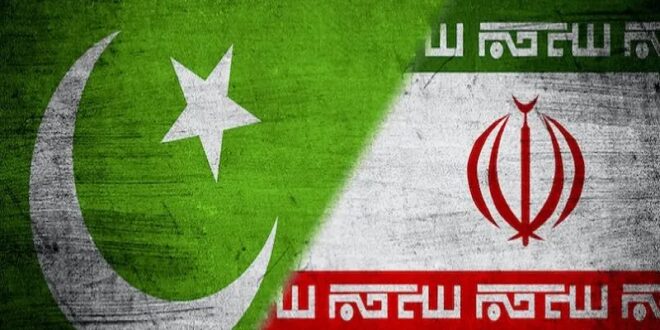Iran absolutely wouldn’t have authorized any retaliatory Pakistani strikes on its territory like Mohammad Marandi and Pepe Escobar’s explicitly stated and strongly implied theories would respectively suggest if there was any truth to their interpretation of why Iran struck Pakistan earlier in the week.
Pakistan confirmed on Thursday morning that it was responsible for strikes against Islamabad-designated terrorists-separatists in eastern Iran’s Sistan & Baluchistan region one day after Iran confirmed that it struck Tehran-designated terrorists-separatists in Pakistan’s western Balochistan region. It was assessed at the time that “The Optics & Timing Of Iran’s Strikes In Pakistan Are More Important Than The Military Impact”, while the same can arguably be said about Pakistan’s retaliatory strikes, albeit in their own way.
The most important takeaway from Thursday morning’s development is that debunks the theory over the past day that these two countries are secretly cooperating groups on their territory that the other has designated as terrorists-separatists. Veteran Iranian political analyst Mohammad Marandi told Sputnik on Wednesday that there is “more understanding between the Iranian government and the Pakistani government than meets the eye.”
He added that “Of course, the Pakistani government needs to protest, but behind closed doors, both sides are cooperating, and both sides are very concerned about terrorism…So, behind closed doors, the relationship is very different. Iran and Pakistan as well as Iran and Iraq, will continue to preserve strong relations.” Around the same time, top Alt-Media influencer Pepe Escobar tweeted a picture of the Iranian Foreign Minister and Pakistani Prime Minister meeting at Davos and suggestively wrote that “The owls are not what they seem.”
Both Marandi and Escobar are regarded as authoritative sources on Iran among many, but their reactions on Wednesday overlooked Pakistan’s strong condemnation of the attack, expulsion of the Iranian Ambassador, and the recalling of its own Ambassador to Iran. They assumed that this was all for show as part of some larger choreographed dance between these two countries, which also downplayed the furious reaction on social media that was fueled by accounts considered close to the Pakistani Army.
Less than 24 hours later, Pakistan’s retaliated in a tit-for-tat move accompanied by near-identical diplomatic language as Iran’s, with resulted in the first officially acknowledged state-level bombing of the Islamic Republic since the bloody 1980s Iran-Iraq War. Just like Pakistan was unlikely to let Iran’s Indian-like “surgical strike” go unanswered due to the optics involved, nor is Iran likely to let Pakistan’s Iraqi-like bombing of its territory go unanswered either, and this could further worsen regional instability.
China might attempt to diplomatically intervene in this dangerous development that abruptly toxified ties between two of its top Belt & Road Investment partners while the Afghan-based and Islamabad-designated TTP terrorists could try to exploit it for going on the offensive again against Pakistan. The US could also take advantage of this by positioning naval assets in the Gulf for deterring Iran from climbing the escalation ladder against Pakistan while pledging full support for its “Major Non-NATO Ally”.
Whatever ends up happening, there should be no doubt that Iran absolutely wouldn’t have authorized any retaliatory Pakistani strikes on its territory like Marandi and Escobar’s explicitly stated and strongly implied theories would respectively suggest if there was any truth to their interpretation of events. Sometimes the most authoritative sources and reputable experts get it wrong, after which they should publicly account for why that was and update their audience in order to not lose their credibility.
 Eurasia Press & News
Eurasia Press & News

